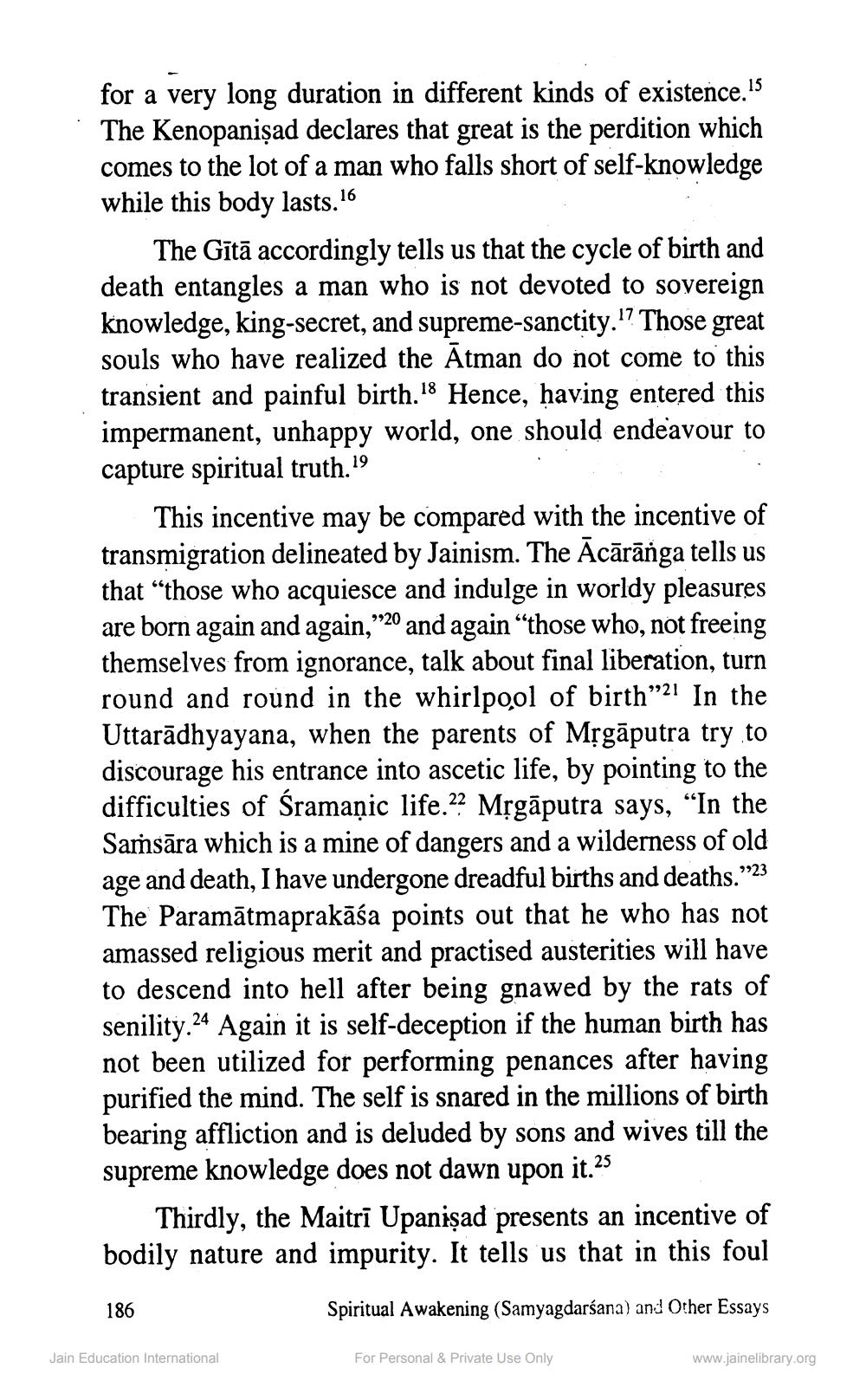________________
for a very long duration in different kinds of existence.15 The Kenopanisad declares that great is the perdition which comes to the lot of a man who falls short of self-knowledge while this body lasts.16
The Gītā accordingly tells us that the cycle of birth and death entangles a man who is not devoted to sovereign knowledge, king-secret, and supreme-sanctity.1? Those great souls who have realized the Atman do not come to this transient and painful birth. 18 Hence, having entered this impermanent, unhappy world, one should endeavour to capture spiritual truth.19
21
This incentive may be compared with the incentive of transmigration delineated by Jainism. The Acārānga tells us that "those who acquiesce and indulge in worldy pleasures are born again and again,"20 and again "those who, not freeing themselves from ignorance, talk about final liberation, turn round and round in the whirlpool of birth" In the Uttaradhyayana, when the parents of Mrgāputra try to discourage his entrance into ascetic life, by pointing to the difficulties of Śramanic life.22 Mrgāputra says, “In the Samsara which is a mine of dangers and a wilderness of old age and death, I have undergone dreadful births and deaths."23 The Paramātmaprakāśa points out that he who has not amassed religious merit and practised austerities will have to descend into hell after being gnawed by the rats of senility.24 Again it is self-deception if the human birth has not been utilized for performing penances after having purified the mind. The self is snared in the millions of birth bearing affliction and is deluded by sons and wives till the supreme knowledge does not dawn upon it.25
Thirdly, the Maitri Upanisad presents an incentive of bodily nature and impurity. It tells us that in this foul
Spiritual Awakening (Samyagdarśana) and Other Essays
186
Jain Education International
For Personal & Private Use Only
www.jainelibrary.org




